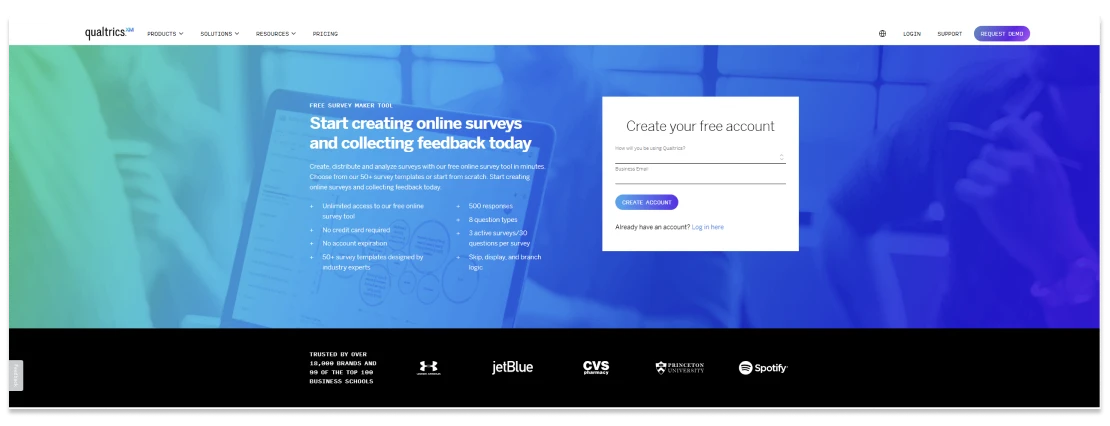
Understanding your target audience is essential for success in the competitive world of eCommerce. Whether you’re launching a new product or refining your marketing strategy, market research allows you to gather valuable insights that help tailor your offerings to meet customer needs. Big brands like Nike, Starbucks, Zappos, and Apple rely on market research to make data-driven decisions, giving them a significant edge over competitors.
For small and mid-sized eCommerce businesses, utilizing market research tools can be the key to making smarter business decisions, improving customer satisfaction, and increasing revenue. In this blog, we’ll explore the market research process, the difference between qualitative and quantitative research, how to get the most out of market research tools, and the best platforms available—even the ones used by industry giants.
The Market Research Process
Effective market research doesn’t happen by accident. It involves a strategic approach that ensures the data collected is relevant, accurate, and actionable. Here are the essential steps in conducting market research for your eCommerce business:
1. Identify Your Goals
Before diving into research, define what you’re trying to achieve. Are you looking to understand your customers better, evaluate a new product idea, analyze competitors, or refine your branding? Clear objectives will help guide the research process and ensure that the data collected serves a purpose.
2. Define Your Target Audience

Who are you trying to reach? This step involves segmenting your audience based on demographics, psychographics, shopping behaviors, and purchasing power. Knowing who your ideal customer is helps refine your messaging and offerings.
3. Choose the Right Research Method
There are multiple ways to gather data, and selecting the best method depends on your goals. You might use surveys, focus groups, customer feedback, website analytics, or competitive analysis.
4. Gather Data

Once you’ve selected your research method, it’s time to collect data. This could include tracking customer behavior, sales trends, social media engagement, or direct customer feedback. Market research tools automate much of this process, making it easier to analyze large sets of data.
5. Analyze and Apply Findings
Data is only useful if you know how to interpret it. Look for trends, insights, and patterns that can guide decision-making. Then, apply these insights to improve your marketing strategies, product offerings, and overall customer experience.
Qualitative vs. Quantitative Market Research
Qualitative Research
This type of research focuses on understanding customer emotions, motivations, and behaviors. It’s typically conducted through interviews, focus groups, and open-ended surveys. Qualitative research provides deeper insights into why customers make purchasing decisions but can be harder to scale due to the time-intensive nature of gathering insights.
Quantitative Research
Quantitative research is all about numbers, data, and measurable trends. It uses large datasets, statistics, and analytics tools to provide insights into customer behavior, preferences, and sales performance.
Best Market Research Tools for eCommerce Businesses
Now that we’ve covered the importance of market research, the different types, and how to leverage research tools effectively, let’s look at some of the best platforms available for eCommerce businesses. These tools can help you gather valuable data, track trends, and make data-driven decisions.
Google Trends
Google Trends helps businesses identify emerging trends by analyzing search volume and interest over time. This tool is essential for spotting seasonal demand, understanding what topics are gaining popularity, and aligning marketing strategies with customer interest.
AnswerThePublic
AnswerThePublic is a great tool for understanding what questions consumers are asking. By analyzing autocomplete search queries from Google and Bing, it provides a visual representation of customer interests, concerns, and trending topics. This is especially useful for creating content strategies and optimizing product descriptions.
SurveyMonkey
Customer feedback is critical, and SurveyMonkey makes it easy to conduct surveys. Whether you want to gauge customer satisfaction, gather feedback on new product ideas, or understand purchasing motivations, this tool provides valuable insights directly from your audience.
Qualtrics

Qualtrics is a powerful platform for customer experience management and advanced survey research. It allows eCommerce brands to collect in-depth data on customer satisfaction, product preferences, and overall brand perception, helping businesses refine their strategies based on real customer input.
Think With Google
Think With Google is a research and insights hub that provides valuable consumer behavior data, industry reports, and marketing strategies. It helps businesses stay ahead of digital trends by offering case studies, tools like the Rising Retail Categories report, and expert analysis.
Hotjar
For businesses looking to improve their website’s user experience, Hotjar is a must-have. It provides heatmaps, session recordings, and real-time user feedback to show how visitors interact with a website. This data helps brands optimize product pages, checkout processes, and navigation for better conversions.
Conclusion: The Power of Market Research in eCommerce
Market research is a game-changer for eCommerce businesses looking to stay ahead in an increasingly competitive landscape. By leveraging the right market research tools, brands can gain valuable insights into customer behavior, emerging trends, and industry shifts. This data-driven approach enables businesses to refine their strategies, create better-targeted marketing campaigns, and develop products that truly resonate with their audience.
In a fast-moving digital world, those who invest in understanding their market will always have the upper hand. Whether you’re a small startup or an established brand, utilizing market research tools effectively can be the key to long-term success.

 Eashan Mehta
Eashan Mehta





